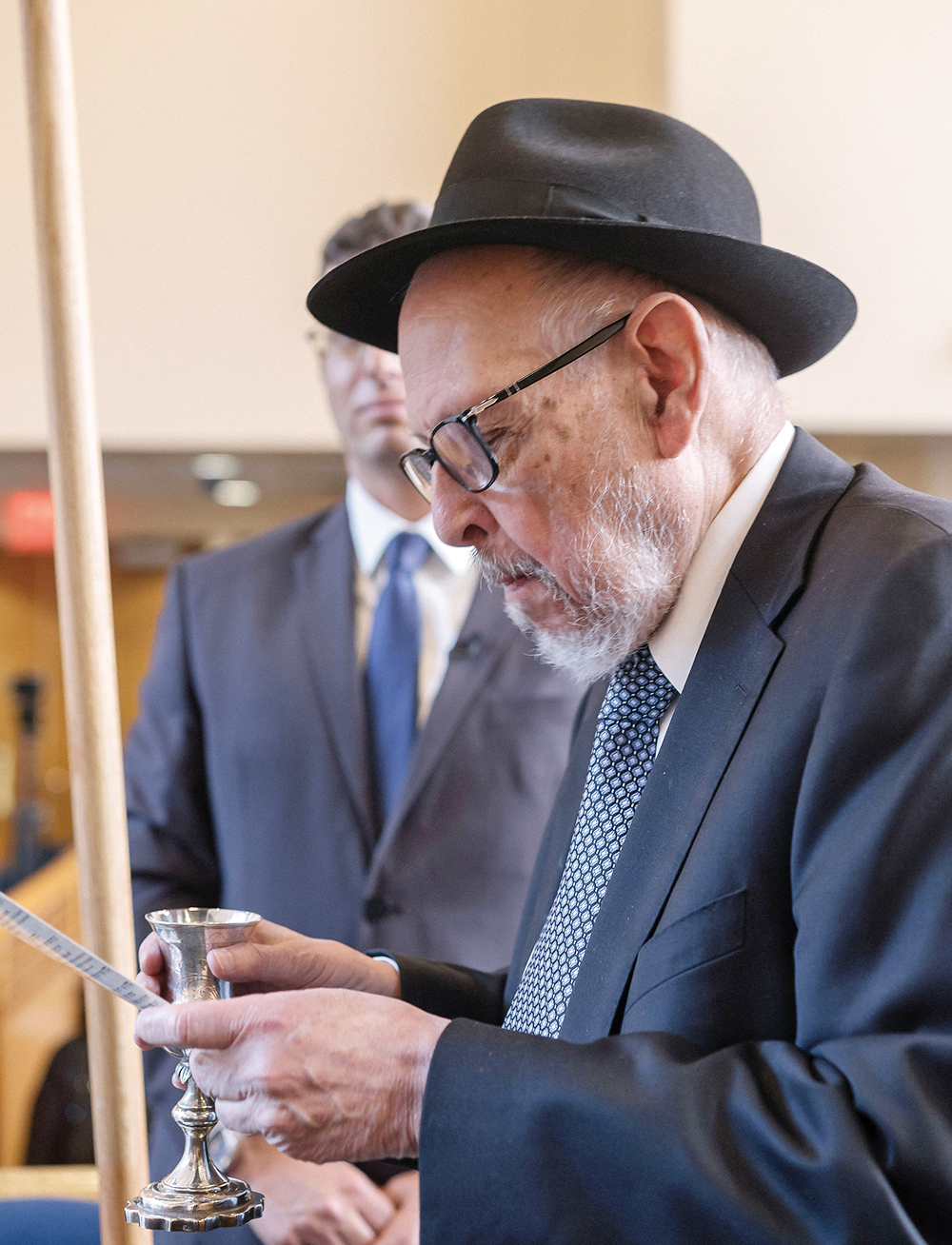Dear Rabbi Lawrence,
I want to apply a topical anesthetic to my baby before his bris, but my uncle told me that halacha requires a baby to feel pain during a bris. I feel a bit uncomfortable with this concept and it seems counterintuitive to me. Is there a source for this?
Sincerely, Rivkah C.Dear Rivkah,
Thank you for bringing this important question to me and to the readership! The issue of pain management and bris milah has been a topic of much discussion since the advent of effective and safe anesthesia, and is truly deserving of communal attention. I want to cut to the chase and share that the normative halachic opinion is that pain is not a requirement of bris milah and that many of the families I serve choose to use a topical anesthetic as part of the pain management regimen associated with the bris. Some even hold that a topical anesthetic is required according to halacha (see below). But while the majority amongst poskim do not side with your uncle, there are indeed some who do.
Those who hold that pain is essential to the mitzvah of milah overwhelmingly point to the midrash in Bereishis Rabbah, which states that when Avraham Avinu underwent his bris milah, he willingly experienced great pain so that “the Holy One should double his reward.” They conclude that since Avraham, for whom the covenant is named, endured pain during his bris, it is therefore essential to the mitzvah itself. In 1925, Rabbi Meir Arik, the Imrei Yosher, wrote a responsum that indicated just that; he adds that Chazal, the rabbis of the Mishnah and Gemara, were aware of early forms of anesthesia but did not mention them in relation to the bris ceremony and procedure. Their omission from the discussion, in his view, represents a rejection of their use. This opinion was also famously held by Rabbi Eliezer Waldenberg (the Tzitz Eliezer) and the Lubavitcher Rebbe, who both cite the Imrei Yosher in their writings.
The conversation around pain and circumcision was also a source of controversy in the medical community—but in a totally different way! For the greater part of the 20th century, doctors believed that infants could not experience pain; all sorts of surgeries, including circumcisions, were performed without any pain management. While any parent could have refuted that theory based on experience with their own child, many studies have since shown conclusive physiological evidence of pain in infants. In response to these findings, members of the medical community expanded their advocacy for pain management even in procedures as simple as circumcision. In 1997, the Associated Press released a short piece in the New York Times titled “Doctors Advocate Pain Relief for Circumcision,” which outlined some of the prevailing research on the topic and included an interview with a popular mohel.
In response to the piece, Rabbi Moshe Dovid Tendler, zt”l, esteemed posek and professor of Jewish medical ethics, wrote a letter to the editor clarifying what he understood to be “the Jewish take” on the issue. He wrote the following:
“Circumcisions performed by mohels, Jews authorized to perform the procedure called a bris, take about one minute, thus minimizing pain. [In contrast,] the standard surgical protocol lasts more than 10 minutes. It is a biblical prohibition to cause anyone unnecessary pain. Although the study in question recommends a series of injections into the shaft of the penis, the pain from these injections may be equivalent to the pain of circumcision. A much safer and effective topical analgesic, applied one hour before the procedure, exists. Thirty percent lidocaine in an acid mantle base is effective and should be used even during ritual circumcision.”
Rabbi Tendler held that, contrary to the Imrei Yosher and the Tzitz Eliezer, halacha is indeed concerned with limiting pain. In deference to his beloved father in-law Rabbi Moshe Feinstein zt”l, who cautioned against the use of certain injected anesthetics based on the fear of dangerous side effects, Rabbi Tendler suggested using a topical (non-injected) anesthetic. He went further, however, by insisting that such an anesthetic is not just an option, but “should be used” as long as it does not pose risk to the baby. Rabbi Shlomo Zalmen Auerbach and Rabbi Yosef Shalom Eliashiv similarly agree that a topical anesthetic like Lidocaine 4% cream should be encouraged for bris milah usage.
So Rivkah, please feel confident in your instincts and as long as you clear it with your doctor, feel free to use a topical anesthetic. Normative halacha clearly states that as long as the method of pain management is safe and not painful, it is not only permitted, but encouraged and, some say, even required!
Wishing you a mazal tov on the arrival of your son!
Warmly,
Rabbi Lawrence
Rabbi Eliezer Lawrence is a doubly certified, highly rated mohel serving the NY, NJ and CT region and beyond. If you or someone you know is expecting or want to learn more about his practice, visit www.FamilyMohel.com. He can also be reached at Rabbi@FamilyMohel.com or at (212) 518-7334. Questions for the column can be submitted to AskTheMohel@FamilyMohel.com









